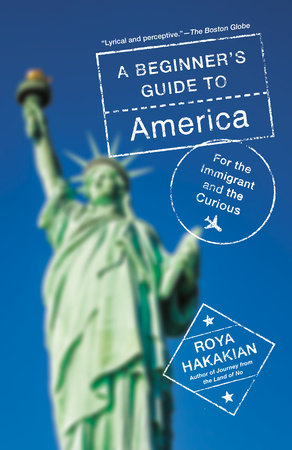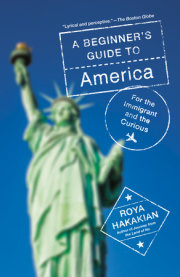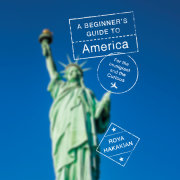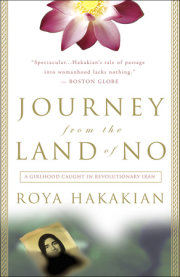Chapter One
Upon Arrival in America the Beautiful
A newcomer can do much to teach himself—especially if he is not afraid of being called a “greenhorn.”
—Marian Schibsby, Handbook for Immigrants to the United States, Foreign Language Information Service (1927)
The long-awaited day is here. You are almost in America. Up in the sky, you press your forehead against the glass and look down. There you see her for the first time. If you are arriving at night, America, the jewel, shimmers beneath. If in daytime, you see the outlines of her riches, the green of her lush woods, the blue of her leviathan waters. Until then, you had only felt exhaustion and sleeplessness. But all that vanished at the first glimpse of the ground. Now there is only fear and excitement coursing through you.
It has been a long time since you have been welcomed anywhere. Tears—of dread, sadness, or gratitude, you cannot be sure—blur your view of the forms you must fill out before landing. If you come from a country of compulsory dress codes—veils, scarves, or niqabs—you might shed the layers now, but remember that soon customs officers will glance at the photograph in your passport and then at you standing before them to reconcile the two versions of you. This is the first of many masks you will shed in the years to come.
From the moment you step off the plane, your eyes will search for the traces of Americanness in your surroundings. Yet the sun is the same sun. The asphalt looks just as black. The jetway gives the same groan all other jetways give underfoot. The transit corridors lit with fluorescent lights stretch as menacingly as all passageways you have gone through. Only when you stand in line—one hand clutching a bag, another on the handle of a suitcase—and your eyes begin to rove about will you see something you have only seen at a tourist destination before. Pinned on the flap of the chest pockets of the officers guiding everyone are name tags—“Sanchez,” “McWilliams,” “Cho,” “Al-Hamed”—and, by God, all of them Americans! If jet lag has not clouded your senses, you will instantly recognize this to be the surest sign of America. In the monochrome life you just left behind, such a motley human landscape would have been unthinkable.
First Inspections
At the reception hall of the terminal, there will be lots of activity, and great, exhausted crowds will teem about you. But there will be none of the alarming chaos that had come with the crowds of the past. When it is your turn in line, you will be called to a booth. There are more forms to fill out. You will present your pleasantest self through the glass, while anxiety boils inside. If you are lucky, the officer will look up with a smile and say, “Welcome to America!” Then the floodgates of tears you had worked hard to push back will open again, and you will weep. Weeping is the last thing you want to do at your first meeting in the new country, but you cannot help it. No one will ask why you cry. The officer knows, as do you, that though America is not yet your home, it is the place where you have come to breathe, find peace, and rest at last.
If you are not lucky—for this is where you could be detained or even turned back—you will reach the booth of a moody officer who will only ask for your passport. You offer it reverently, in the palms of both hands, like a sacrifice at an altar. With every leaf he turns, your heart beats faster. You are ready to be suspected, interrogated for your “country of origin.” Sweat beads on your temples. Nothing good ever came of a uniform where you used to live. Uniforms belonged to the powerful. They were the people you had to outfox. Here you must do your best to remember that the officers in the booths have little in common with the ones you used to fear. Take deep breaths and remind yourself that you are in a place where the law, for the most part, is king.
You are waiting for a stamp in your passport, the nine-digit numeric benediction that launches millions from everywhere to enter into the green card lottery. The card you will get in a year will primarily be white, and it will bear this very number. Roughly 3½ by 2 inches, it will allow you to cross from an uncertain life over which you had no control to an uncertain life that will be of your making—to a preferable form of uncertainty. The card will have your essential coordinates: birth date, signature, full name, photo, and thumbprint. The latter bears the crass sign of a mark branded on cattle, but no matter. You will be a “resident alien,” able to live and work in the United States, though for the foreseeable future you will feel the alien far more acutely than the resident. Your color portrait in the foreground will be to the left of that of Lady Liberty in the background. You and she, your timid smile beside her regal crown, will be a pair. Your once-distant dream real and laminated now.
Dogs will come around to sniff your bags. Officers will rummage through your belongings, wrinkling their noses at the scent of your spices. The younger ones among them might sneer at your traditional pantsuit, your meticulously translated bundle of transcripts or certificates of merit and awards, your lovingly folded stack of sashes and ribbons, reminders of past glories that duly fill you with pride. They will undo them, then toss them onto a jumbled heap. This is how America welcomes everyone: by preparing them for anonymity. Gird yourself for what you will surely register as disrespect, a personal offense, yet it is merely disregard for what you have achieved elsewhere. America cares little about what you have done, only what you will do while you are here. This is the first of many times your heritage will be tossed aside. But they will not take away your books, or examine the writings in your journals, or ban you from speaking or publishing what you choose.
You will gather your suitcases bursting with all that you could salvage of your old life. Your mind, too, is bursting with all that you have been told about America. Keep the suitcases, but discard the knowledge. In fact, even before going through the last set of metal detectors to get on a plane to your final destination, place your views of America—along with your shoes, keys, coins, and cell phone—in the gray rubber bins, and leave them there. What you know is likely to be a distortion—not without truth, but without precision. It always takes months, if not years, to sift through all that one has hauled across the continents and decide what to keep and what to scrap. The sermons about America that angry imam delivered at Friday prayers, the tirade the principal shouted over the bullhorn in the schoolyard at the queues of pupils, or the rants the talk show hosts broadcast on state-run television cannot guide you through the real America. You will receive many gifts during your time here, but the greatest of them all is America herself, lying before you beyond the revolving doors of the airport. She will surely break your heart, but the heartbreaks, like the joys, are not in the scripts you have been handed. The sooner you part with the old inherited notions, the faster you will navigate your way through the thicket of your new life. And this is the first day of that new life, a second birth of sorts. The day of your arrival will someday become a major date in your calendar. It will be neither public like the Fourth of July or New Year’s Day, nor festive like a birthday, but it will give you an annual pause and you will look back tenderly at yourself and at this very moment, standing on the street, breathing the air of a new world.
Stepping onto the American Street
When you step onto the street for the first time, an awestruck feeling will wash over you. You will be exhausted but alert, too. What you will see then will remain with you in the same way that your wedding day, first day of school, or the birth of a child will always remain with you. Years from now, people will ask you to tell your memories of this first day. What you will recall will hardly be about the things before your eyes, but the feelings the views conjured in you. Tourists look at, pose beside, and take photographs of what they see. The uprooted observe, reflect, and imbibe the effects of those views.
The things you hear will equally stay with you. You will find the air thick with noises you have not heard in a long time, or have simply never heard before. In the past when you thought of freedom, you thought of free speech as its only sound. But sometimes freedom’s best trace is not in words but in silence. It is in the absence of the whispers that fear spreads. It rings in the humming of a teenage boy, standing in the bus line, swaying to the uncensored music in his ear; in the swishing of a carefree teenage girl, gliding past on roller skates; in the unafraid laughter of two women chattering; in the whistling of a dreamy guardsman; in the unprohibited tunes that waft out of the passing cars; in the barking of full-bellied pet dogs, not banned by any edicts, cockily walking at the side of their owners; or in the stilted yet civil uttering of the shopkeepers’ “Can I help you?” (for business is the daytime god and must go on despite all else); in every tapping foot or clapping hand that does as instinct commands; in all the ways that a people who have not been cowed into silence exercise their sonorous existence.
Copyright © 2021 by Roya Hakakian. All rights reserved. No part of this excerpt may be reproduced or reprinted without permission in writing from the publisher.










